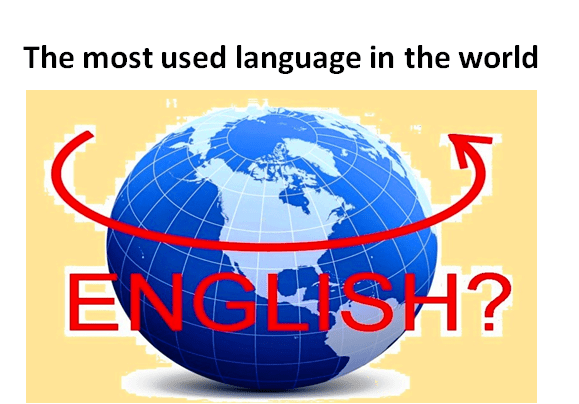English as the world’s lingua Franca
It is usually the case that people within each community tend to use a very specific language, or perhaps a set of languages if the community is multilingual to communicate with one another. However, they are somehow forced to use another language to get interacted with other communities for a variety of reasons (social, political, and cultural…). To communicate well, they need to find an “appropriate language” that is not their mother tongue, a language that is shared on a global ground. This language is referred to as lingua Franca. The latter term is defined as a variety that is not identical to someone’s mother tongue and which is used by people to facilitate the process of interaction.
Nowadays, English is perceived to be the Lingua Franca of the whole world because it is used in many places and for different reasons (travel, trade, commerce, research, medicine, international relations..etc.). English has been in the last two decades an international language because its use can be traced back to the majority of countries. For some speakers, it is the mother tongue. For others, it is a second language and for others, it is a foreign language (Moroccan case).
Lingua Franca is sometimes used to refer to the notion of language spread which means an increase, over time, in the ratio of a communication network that adopts a certain language or language variety for a certain communicative function. It is generally taken for granted that language, as a concomitant of culture, can spread. In other terms, language spread may be a sort of a political way to describe what and how language imposition works by a greater colonial power. To explain more, the effect that some colonizing countries left on their colonized countries has not vanished up to now, and even though most of the countries had their independence, there is still some linguistic colonization left. English has an international power that is strictly related to the economic status of the United States. Having a powerful economy is perhaps one of the strongest factors that motivates English to have that global prestige.
English, these days, is described as a fully and internationally dominating language for an array of factors. It is promoted in areas where it is not spoken as the mother tongue, learned through the medium of education, and being used for a range of functions, which is obviously seen in the media, parliament, government, official communication, and administration.
The power of English is perhaps influential on people, societies, and companies. Therefore, everybody tends to use it. In addition to this, it is being taught in schools and all educational settings. It is used for internal communication by people who don’t share a common language (especially among educated ones).






